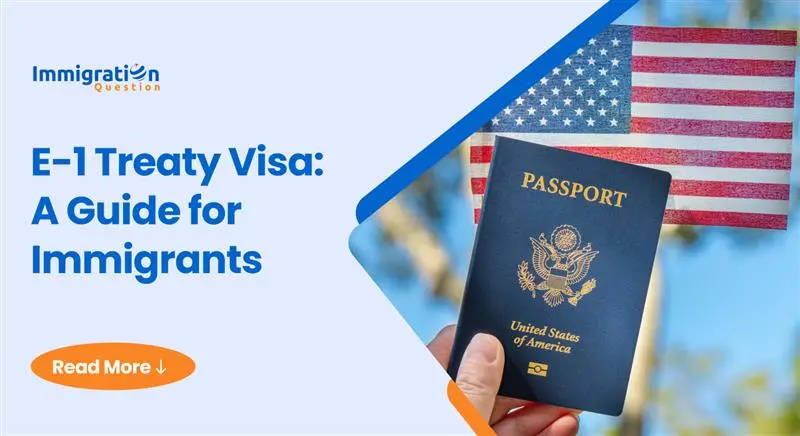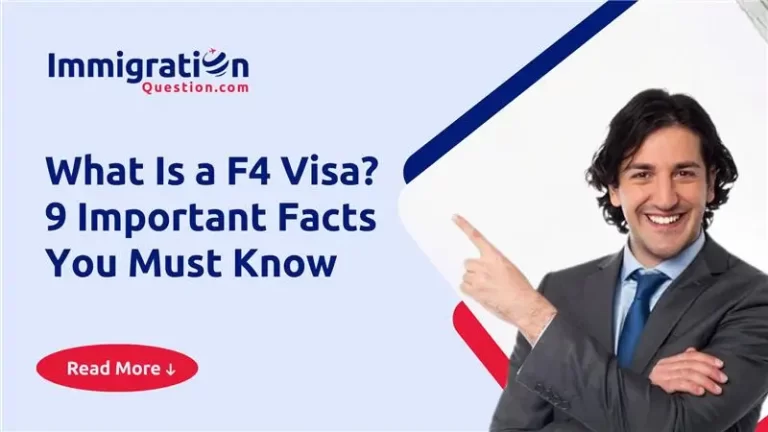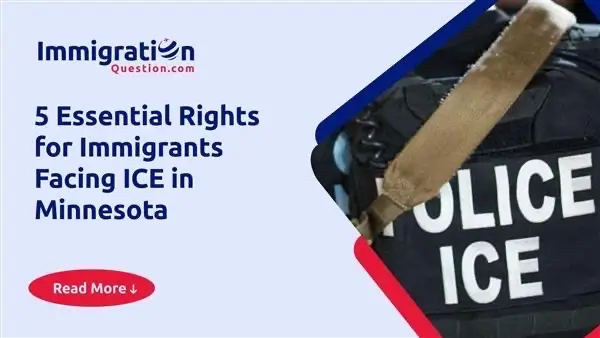Entrepreneurs and business professionals looking to expand their global operations have various United States visa options that encourage trade, investment, and innovation. One of the most powerful visas for international business is the E-1 Treaty Trader Visa.
Immigration Question (IMQ) connects users exclusively with verified, licensed U.S. immigration attorneys who guide visa eligibility, application processes, and legal compliance. So, if you are seeking answers to your E-1 visa concerns, an Immigration Question attorney is just a few clicks away.
This blog covers everything you need to know about the E-1 Visa: who qualifies, the application process, benefits, and how IMQ can ease your journey.
What is the E-1 Visa?
The E-1 Visa is a nonimmigrant visa that allows nationals of treaty countries to enter the U.S. to engage in international trade on their behalf. Employees of eligible treaty traders may also qualify.
This visa category is governed by agreements between the United States and certain treaty countries, making it a unique pathway for global business collaboration. Unlike some business visas, the E-1 does not require a specific investment amount. Instead, the focus is on substantial and ongoing trade between the treaty country and the U.S.
Who is Eligible for the E-1 Treaty Trader Visa?
A treaty trader must meet several requirements to qualify for E-1 classification. They are:
- Treaty Country Nationality
The applicant must be a national of a country with which the United States has a treaty of commerce and navigation. Some of these countries include:
- Japan
- Germany
- Mexico
- France
- South Korea
- United Kingdom
- Australia
Visit the U.S. Department of State’s website to see the complete list of treaty countries. Or speak with an Immigration Question lawyer to confirm your eligibility.
- Substantial Trade
The applicant must prove substantial trade between the U.S. and their treaty country. These trades include goods, services, international banking, insurance, tourism, and technology transfers. Substantial trade does not require a specific amount but should show continuous, significant transactions.
- Principal Trade with the U.S.
More than 50% of the trader’s total international trade must be between the United States and the treaty country.
Which Activities Qualify as “Trade”?
“Trade” is interpreted broadly under the E-1. Qualifying activities include:
- Import/export of goods
- Providing international services
- Technology and software exchanges
- International banking or insurance
- Logistics and shipping operations
- Tourism services
- Journalism and media-related services
If you are uncertain whether your business qualifies, connect with a licensed Immigration Question attorney on the IMQ platform to evaluate your case.
What is the E-1 Visa Duration?
An approved E-1 is granted for an initial two-year period, with unlimited two-year extensions available, as long as the applicant maintains their eligibility. The flexibility to travel in and out of the U.S. freely is one of the visa’s significant advantages.
Additionally, E-1 visa holders who travel abroad and re-enter the U.S. may be automatically granted another two-year admission, subject to Customs and Border Protection approval.
What are the E-1 Visa Employment Conditions?
Once approved, a treaty trader or employee can only work for the business described in the original visa petition. However, employees may work for related entities, such as a parent company or subsidiary, if:
- The relationship is well-documented,
- The employee holds an executive, supervisory, or essential skills role, and
- No substantive changes have occurred in the business.
If changes such as mergers, acquisitions, or sales occur, the employer must file a new Form I-129 with the United States Citizenship and Immigration Services (USCIS). Failing to update USCIS could jeopardize the visa status.
You are strongly recommended to discuss with an Immigration Question lawyer before your company undergoes any restructuring to determine how it can affect your visa status.
What Are the Benefits of the E-1 Visa?
There are several advantages to applying for the E-1 Treaty Visa. Some of them are:
- Unlimited Extensions: You can renew in two-year increments without a cap.
- Automatic Extensions: E-1 visa holders can travel internationally and re-enter the U.S. with automatic extensions.
- Family Inclusion: Spouses and unmarried children under 21 can accompany you.
- Spouse Work Authorization: Your spouse can work anywhere in the U.S. without employer restrictions.
- No Prior Employment Requirement: Unlike some other visas, there is no need for employees to have worked abroad for one year.
These benefits make the Visa particularly attractive for growing businesses and families aiming to establish a more permanent presence in the United States.
Can You Bring Your Family with You on E-1 Visa?
Your family can also be part of the journey. Spouses and children under 21 can apply for E-1 dependent visas. While children cannot work, your spouse can apply for an Employment Authorization Document (EAD) and work anywhere in the U.S. This flexibility is helpful for families adjusting to life in a new country.
How do You Apply for the E-1 Visa?
The E-1 Visa application process can be completed at a U.S. embassy abroad or within the U.S. if you are adjusting your status. Here is the breakdown:
- Complete the Nonimmigrant Visa Electronic Application (DS-160) form
- Gather Documents: Proof of treaty country nationality, substantial trade, and ownership/control of the enterprise
- File Form I-129 (if applying within the U.S.) or schedule an appointment (if applying abroad).
- Attend an Interview: Present business documents, tax records, and other evidence.
- Get a Decision: Once approved, your E-1 Visa will be issued, or your status will be adjusted.
Frequently Asked Questions About the E-1 Treaty Visa
-
Does an E-1 visa lead to a green card?
The E-1 Treaty Visa does not provide a path to U.S. permanent residency (green card). To obtain a green card, you must qualify through a separate immigration category, such as family sponsorship, an employment-based visa, or the EB-5 investor program.
-
What is the difference between the E-1 and E-2 visas?
The E-1 Treaty Visa is for treaty traders who engage in substantial international trade between the U.S. and their home country. The E-2 visa, on the other hand, is for treaty investors who invest a significant amount of capital in a U.S. business. Consult an Immigration Question lawyer to determine which category you qualify for.
-
How long is the E-1 visa valid for?
The E-1 is issued for an initial period of 2 years. However, there is no limit to the number of extensions you can request as long as you continue to meet the visa requirements. Extensions can be granted in two-year increments by filing Form I-129 with USCIS.
-
What are treaty countries in the context of the E-1 visa?
Treaty countries are nations that have a treaty of commerce and navigation with the United States. Citizens of these countries may be eligible for the E-1, provided that nationals of the treaty country own at least 50% of the business. You can check the U.S. Department of State’s website for a complete list of eligible treaty countries.
Why Choose Immigration Question (IMQ)?
Immigration Question (IMQ) is a secure platform to connect exclusively with licensed, verified U.S. immigration lawyers. Here is what makes IMQ different:
- Verified legal help only
- No middlemen or unlicensed consultants
- Confidential, secure communication
- Real-time access to Immigration Question lawyers
If you have questions about the E-1 or any other immigration matter, visit Immigration Question. An Immigration Question attorney is always available to assist you.











